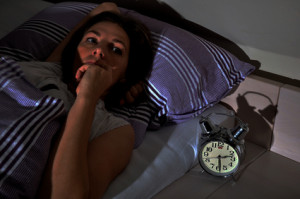
According to the National Sleep Foundation, more than a third of people in the United States suffer from sleep disorders. Increasingly, it has become difficult for us to fall asleep, sleep throughout the night without waking, or achieve the deep sleep that our bodies need. Günther W. Amann Jenson, a Swiss sleep psychologist, maintains that up to 80% of people don’t recover from the exertions of everyday life when sleeping.
What happens in your sleep?
There are many societies and institutes in the UK dedicated to the study of sleep and its correlation to illness. Scientists at the British Sleep Society, for example, have focused on body processes and brain function in particular. Studies show that our bodies and brains remain extremely active while we sleep: they process our experiences, store knowledge, repair cells, revitalize our immune systems, and reenergize us so that we can function efficiently and effectively when we rise. Although we think of sleep as a time of inaction, on average we turn up to thirty times during the night. When we sleep, only our consciousness truly sleeps.
Check out Part five to see how Swiss Harmony can help you.
